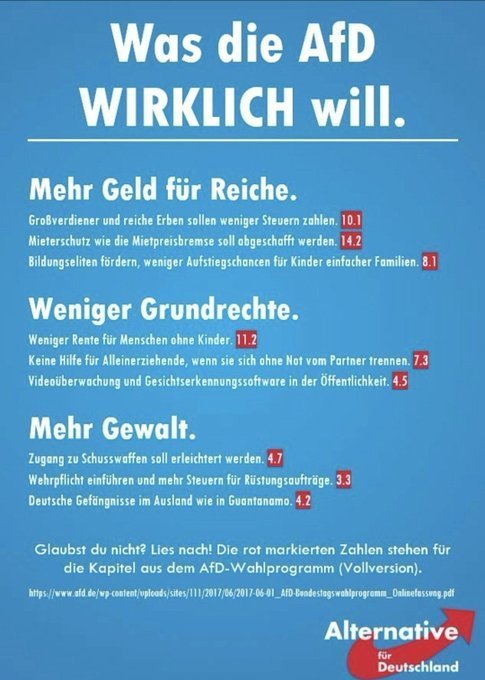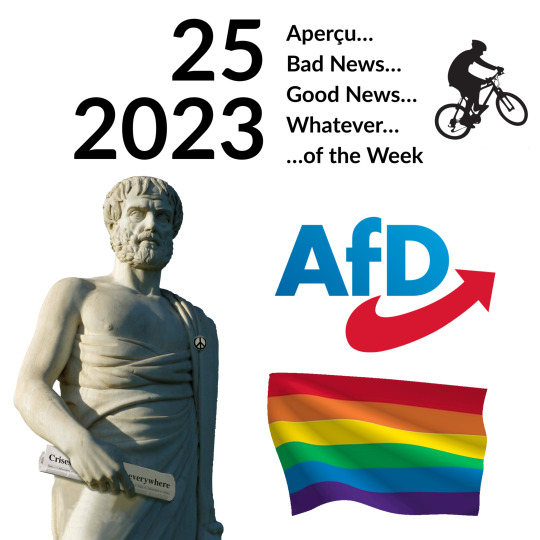#Sonneberg
Explore tagged Tumblr posts
Text




"Ich kann nur nie vorher schreiben, weil doch immer etwas dazwischen kommt."
Ansichtskarte
SONNEBERG (Thür.) Karl-Marx-Straße – Kreishaus.
Gotha: Spezial-Kunstverlag Alber tHORN, Gotha (1228 R 1/67 IV-14-45 F 773)
Foto: Bockner, Sonneberg
1967
#Sonneberg#Albert Horn#Bezirk Suhl#1960er#1967#Philokartie#DDRPhilokartie#Architekturphilokartie#OstmodernePhilokartie#RolandSchenk#ErhardSimon#DDRArchitektur#GDRArchitecture#SocialistModernism#Ostmoderne#BezirkSuhl#akSonneberg#Archigrafie#Ansichtskartenfotografie#AnsichtskartenfotografieDerDDR#deltiology#VintagePostcard
21 notes
·
View notes
Text

14 notes
·
View notes
Photo

Lichte, Thuringia.
91 notes
·
View notes
Text
Bahnhof Sonneberg

#monochrome#intermerker#b&w#b&w photography#fotography#sonneberg#bahnhof#analog photography#analog#praktica
2 notes
·
View notes
Text

Allemagne vers 1950, poupées de la fabrique de jouets à Thuringe, Sonneberg.
4 notes
·
View notes
Photo

Die noafd braucht keine
hidden agenda,
um Wahlen zu gewinnen. Sie kann dem 'einfachen Volk' unverblümt sagen, was ihm blüht, wenn sie drankommt, und wird von jeder*m Zweiten gewählt ... — Ein Tag der Schande!
Wie sagt A. v. Lucke mit Leonhard Cohen: First we take Sonneberg, second Erfurt and then — we take Berlin.
4 notes
·
View notes
Text

2023 / 25 (Short Holiday Edition)
Aperçu of the Week:
"The rule of used up parties and elites must be replaced and we will replace them. The country is upside down. We have to put it back on its feet."
(Björn Höcke, far-right leader of the AfD in Thuringia)
Bad News of the Week:
Sonneberg is a small town in the Thuringian Slate Mountains that used to be known as "Santa's workshop" because of its tradition of toy-making. That has changed today, because with Robert Sesselmann, a candidate of the AfD (Alternative für Deutschland / Alternative for Germany) was elected district administrator there for the first time ever. In Thuringia, of all places, whose state association, led by scandalous politician Björn Höcke, is "securely extreme right-wing" according to the Office for the Protection of the Constitution. In a runoff election in which all democratic parties showed strong support in favor of the CDU candidate and previous incumbent. It's hard to imagine if the "I don't like politics in general, so I'll vote for the maximum opposition in protest" model were to catch on. Holy shit.
Good News of the Week:
The Family and Justice Department's Equality Act is coming. It is primarily aimed at transgender, intersex and non-binary people, who will be able to determine their own gender and first names and change them in a simple procedure at the registry office. Fortunately, the opposition could not prevail with specious arguments that, for example, men would pretend to be women in order to be able to gape in women's saunas - no joke. It's fitting that half a million people of all orientations celebrated Christopher Street Day in Munich yesterday. It's nice when a society becomes more colorful.
Personal happy moment of the week:
This week I spent a wonderful vacation time in the mountains of Austria. With various premiers: for example, the first mountain bike trail with a (borrowed) e-bike and 53 km/h downhill pace. Then also discovered new and good wheat beers: Steinle Weiße and Edelweiß. First time using a public electric car charging station. Closed all activity rings on the Apple Watch for the first time for a whole week. Been to the supermarket without a mask for the first time in well over three years - to buy sunscreen. Life can be beautiful!
I couldn't care less...
...that a district court had examined the proportionality after allowing the surveillance of members of the Last Generation. For one thing, the "initial suspicion of forming a criminal organization" is laughable. And on the other hand, tapping even telephone conversations with journalists, who after all, like lawyers, are professional secrets, contradicts the freedom of the press.
As I write this...
...I am laboriously recovering from the celebration of the St. John's fire last night. It got too late and I drank too much. And then tomorrow is also Monday. Whew...
Post Scriptum
The supposed coup d'etat of Yevgeny Prigozhin's mercenary Wagner troop was over as quickly as it began. What remains is a deep scratch on the image of Russian President Vladimir Putin - who does not have a firm grip on everything all the time. Despite extensive media control, word will get around among the (voting) people.
#thoughts#aperçu#good news#bad news#news of the week#happy moments#politics#afd#thuringia#Sonneberg#Right wing#equality#christopher street day#Munich#vacation#premiere#st. john's#last generation#mountain bike#russia#coup d'etat#yevgeny prigozhin#vladimir putin#wagner group#recovery#austria#holiday#holy shit#life is beautiful#celebrate
3 notes
·
View notes
Text
Wenn Populismus auf Realität trifft
Die finanzielle Lage des Landkreises ist freilich nicht Sesselmanns Schuld. Seine Aussagen hat er aber noch immer selbst zu verantworten.
Können Ärzte, die sehr viel Geld verdienen, aber den Umsatz nicht einbringen, tatsächlich noch weiter beschäftigt werden? [...] Sesselmann sagte weiter, Schwestern und Pfleger verzichteten seit Jahren auf Urlaubs- und Weihnachtsgeld.
Für die AfD sollen Krankenhäuser Menschen also nicht gesund machen, sondern sich rentieren. Wie genau sollen die Ärzte denn den Umsatz ankurbeln? Auf dem Weg zur Arbeit jemanden überfahren? Bei den Abrechnungen betrügen?
Die Lösung der AfD: das Personal gegeneinander ausspielen. Die gierigen Doktoren sollen sich ein Vorbild an den Pfleger*innen nehmen, die (bestimmt aus reiner Großmut) bereits beim Gehalt verzichten.
Ob man mit solchen Mitteln Personal halten oder gar neues anwerben kann, ist fraglich. Der Geschäftsführer hat bereits gekündigt. Auch im Landratsamt herrscht - aus anderen Gründen - rege Fahnenflucht.
Im Übrigen hat Sesselmann entgegen seiner Wahlversprechen noch immer weder den Euro noch den Rundfunkbeitrag abgeschafft, keinen Frieden gegen die Ukraine ausgehandelt und die Sanktionen gegen Russland nicht beendet.
Allerdings: Die deutschen Grenzen hat er einigermaßen dicht gekriegt. Läuft also.
0 notes
Text
WECHSELSPIEL(ZEUG): Oberammergau bis 03.11.2024
In dieser Ausstellung begegnen Exponate aus dem Erzgebirge Oberammergauer Objekten. Das Wechselspiel, die Möglichkeit zu vergleichen, sich in beide Regionen zu vertiefen, macht diese Ausstellung aus. Dank der vielfältigen Leihgaben privater Sammler können wir Exponate aus verschiedenen Regionen des Erzgebirges und aus mehr als 100 Jahren zeigen. Spielzeug bildet sozusagen die Welt im Kleinen ab…
#19.Jahrhundert#Berchtesgaden#die Welt im Kleinen#drechseln#Erzgebirge#Handwerk Kunst#Handwerkskunst#Holzbildhauer#Holzspielzeug#Kunsthandwerk#Malen#Oberammergau#Südtirol#schnitzen#Seiffen#Sonneberg#Spielzeug#Verleger#Volkskunst
0 notes
Text

SONNEBERG - GERMANY => a photo with litho dirigible.
#litografia#pocztówka#germany#niemcy#sterowiec#Sonneberg#post card#litho#kartka#dirigible#fantasy#fantazyjna
1 note
·
View note
Text
Rückblick
(M)ein #Sonneberg-Rückblick: Mehr als Protestwählende und das was #Monitor und #Wolf_Biermann analysieren. @georgrestle
Noch (m)ein Sonneberg-Rückblick: Der Monitor-Beitrag über die Landratswahl im thürinigischen Sonneberg ordnet das Geschehen richtig ein. Die Wahl des AfD-Politikers ist kein Ausdruck bloßen Protestes sondern viel mehr, wenn auch im zweitkleinsten Landkreis der Republik. Man muss Wolf Biermann nicht mögen um seine Analyse hinzuzusetzen, dass zwei Diktaturen nacheinander und dann eine nach…
View On WordPress
0 notes
Text
Wenn Nazis regieren ...
Die Clacqeure sind auch in den (offenen) Kommentaren aktiv. Lohnend ist deren Lektüre allerdings nicht.
3 notes
·
View notes
Text
Für die Geschichtsbücher. Falls mal jemand nachfragt, wie #Sonneberg möglich wurde.

0 notes
Text
Wählerbeschimpfung 🤔❓
Jetzt fühlt sich mal wieder Keine #Partei für #Sonneberg & das Erstarken der #AFD #verantwortlich & schiebt es auf die #Wähler❗Kommt aus euere scheiß #Bubble raus und #wacht endlich #auf. Ich sag euch warum alle zur #AFD rennen:


0 notes
Text

Steinheid, Thuringia.
60 notes
·
View notes
Photo

... und ich bin nicht überrascht.
Zeiten, da sich die Krisen nur so ballen
0 notes